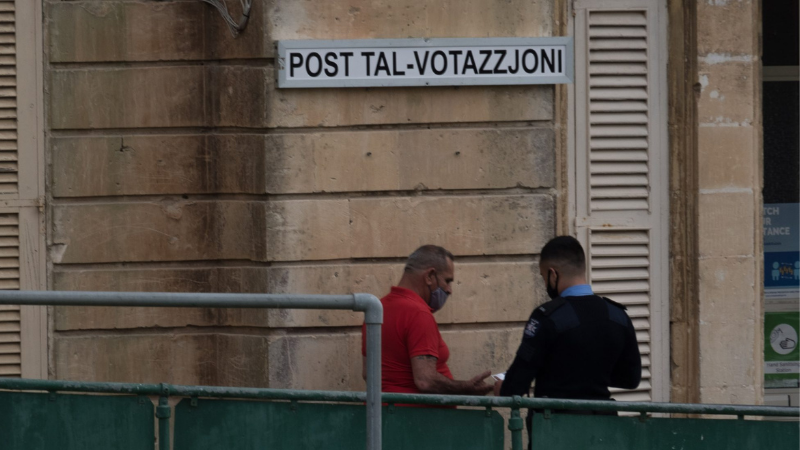Malta’s Electoral Commission cannot act as an effective regulator and the transparency of campaign financing and expenditure is hampered by the lack of political will and the absence of expertise and resources, a report by the OSCE notes.
Published last week, the final report on Malta’s March parliamentary elections by OSCE’s Office for Democratic Institutions and Human Rights (ODIHR) noted, among other things, that there remains no provision for direct public funding of political parties during election campaigns and that most of the previous ODIHR recommendations to enhance transparency and improve the disclosure of campaign finances remain unaddressed.
Opaque campaign financing
In their report, OSCE’s election observers recorded the ‘unusual timing’ of the distribution of tax refunds and stimulus cheques that were accompanied by a letter signed by the prime minister and minister of finance and concluded that “such actions could blur the line between party and state and do not conform to international standards and good practice”.
When addressing the issues of campaign expenditure, the report notes that it was likely that election campaign costs are much higher than what is usually reported by candidates and that in the last campaign, the Labour Party dominated the advertising with a large number of billboards and online adverts and that together with the costly rallies organised by both parties led to a “distorted electoral campaign that disproportionately favoured well-resourced parties”.
As for the disclosure, reporting and oversight of campaign funding, the report describes how ahead of the March elections, the electoral commission had not yet published the party account audits since 2018, “which stands contrary to legal obligations, international standards and good practice, and reflects a lack effective oversight”.
Following the elections, The Shift conducted extensive analyses of the campaign expenditure by politicians that further confirmed the opacity of campaign funding. The Shift had even asked the Electoral Commission how those expenditure reports that lacked receipts had been verified, but the Electoral Commission refused to answer.
Malta’s ‘tarnished’ media landscape
The OSCE report also addresses the role of the media and the public broadcaster during the elections and starts by saying how the murder of journalist Daphne Caruana Galizia and the delays in investigating and prosecuting the crime by the authorities have “tarnished” the media landscape in Malta.
The report describes how Malta’s Public Broadcasting Services (PBS) and the political party’s media outlets dominate the media landscape, ultimately giving the ruling party an undue advantage. The report even noted that the free airtime provided to all contestants during the election campaign was not enough to give everyone an equal opportunity to campaign.
The report also documented that despite the constitutional obligation for due impartiality in public and commercial broadcasting, no measures were taken by the Broadcasting Authority to enforce this commitment during the campaign period, particularly concerning the Nationalist and Labour party TV stations, adding that coverage of political parties in news and current affairs programmes on PBS was generally in favour of the ruling party both in terms of time and tone.
Renewed recommendations
The report concludes with a raft of recommendations prioritising those related to the transparency of decision-making within the Electoral Commission, campaign finance oversight, and the accuracy and impartiality of broadcast media, among others and notes, rather pertinently, that the latest recommendations need to be considered with previous recommendations made by ODIHR within the 2013 and 2017 reports.
The OSCE recommends that the Broadcasting Authority should monitor and enforce its legal obligations for impartiality and accuracy in broadcasting and provide due remedies and that “the appointment procedure for the members of the governing boards of the Broadcasting Authority and the Public Broadcasting Services should be brought in line with international standards and good practice to provide for independence and transparency”.
When addressing campaign financing, the report recommends that all election-related campaign materials contain imprint data. Campaign finance regulations and sanctions should be equally applied to all candidates. That consideration should be given to introducing measures to prevent disproportionate spending of political parties and even suggests that the Auditor General should be empowered to investigate the misuse of public funds for campaign purposes.
Meanwhile, the Electoral Commission should publish all financial reports within legal deadlines and address the existing delays, the report states.
The full report can be read here.













Wishful thinking. These rules do not apply under a PL government.
Not only the electoral commission is demotivated. See what is happening to the nurses, doctors, police and many others who are still silent. Public Administration is in tatters, the major reason being the unprofessional and unexperienced people (apart from their arrogance) that are being appointed to run the show. Case in point is the group of Permanent Secretaries that has been appointed by this filthy government, not on the basis of merit but on the basis of ignorance, since ignorance is bless!